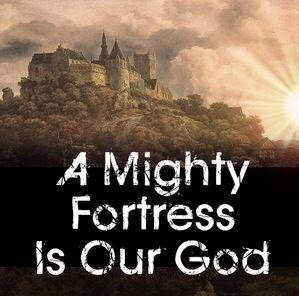 1 There shall come forth a shoot from the stump of Jesse, and a branch from his roots shall bear fruit. 2 And the Spirit of the Lord shall rest upon him, the Spirit of wisdom and understanding, the Spirit of counsel and might, the Spirit of knowledge and the fear of the Lord. 3 And his delight shall be in the fear of the Lord. He shall not judge by what his eyes see, or decide disputes by what his ears hear, 4 but with righteousness he shall judge the poor, and decide with equity for the meek of the earth; and he shall strike the earth with the rod of his mouth, and with the breath of his lips he shall kill the wicked. 5 Righteousness shall be the belt of his waist, and faithfulness the belt of his loins. 6 The wolf shall dwell with the lamb, and the leopard shall lie down with the young goat, and the calf and the lion and the fattened calf together; and a little child shall lead them. 7 The cow and the bear shall graze; their young shall lie down together; and the lion shall eat straw like the ox. 8 The nursing child shall play over the hole of the cobra, and the weaned child shall put his hand on the adder's den. 9 They shall not hurt or destroy in all my holy mountain; for the earth shall be full of the knowledge of the Lord as the waters cover the sea. 10 In that day the root of Jesse, who shall stand as a signal for the peoples—of him shall the nations inquire, and his resting place shall be glorious.
1 There shall come forth a shoot from the stump of Jesse, and a branch from his roots shall bear fruit. 2 And the Spirit of the Lord shall rest upon him, the Spirit of wisdom and understanding, the Spirit of counsel and might, the Spirit of knowledge and the fear of the Lord. 3 And his delight shall be in the fear of the Lord. He shall not judge by what his eyes see, or decide disputes by what his ears hear, 4 but with righteousness he shall judge the poor, and decide with equity for the meek of the earth; and he shall strike the earth with the rod of his mouth, and with the breath of his lips he shall kill the wicked. 5 Righteousness shall be the belt of his waist, and faithfulness the belt of his loins. 6 The wolf shall dwell with the lamb, and the leopard shall lie down with the young goat, and the calf and the lion and the fattened calf together; and a little child shall lead them. 7 The cow and the bear shall graze; their young shall lie down together; and the lion shall eat straw like the ox. 8 The nursing child shall play over the hole of the cobra, and the weaned child shall put his hand on the adder's den. 9 They shall not hurt or destroy in all my holy mountain; for the earth shall be full of the knowledge of the Lord as the waters cover the sea. 10 In that day the root of Jesse, who shall stand as a signal for the peoples—of him shall the nations inquire, and his resting place shall be glorious.Isaiah 11:1-10
Things often turn out differently than we'd expect them to end up. This is especially true when a great disaster or disappointment takes place in our lives. We have a hard time trusting that God is actually at work in such situations to bring about a good result for us. We expect that things will end up being bad for us.
Though we shouldn't be, we're often surprised when God doesn't do what we'd expect.
God has a long history of telling His people that He was going to do unexpected things. And God's people have a long history of being surprised when God does what He said He would do. Isaiah 11:1-10 is a great reminder of this.
Six hundred years before the birth of Jesus, God spoke through His prophet to tell His people what to expect. He told them that the greatness of the kingdom under King David would not be restored in their time. Instead their nation would become like a stump: cut-off and lifeless. But God would bring forth a greater Kingdom and a greater King from that stump.
This message was not what they expected — or wanted.
They wanted power, glory, security, peace, and riches in their lifetimes. They did not see how suffering and hardship could be of any value to them, let alone that it could work good for them.
They had expectations of worldly glory. God had a different idea about what makes for real glory.
We struggle with the same issues as God's people of old. We want things that make our lives more pleasant and much easier. We seek things that bring us worldly glory, power, security, and riches.
We surprisingly discover that God is willing to keep or take those things from us in order to give us a better future.
He wants us to experience His glory, power, security, and riches. But these things often come to us in the ways that we don't expect. It's when we are broken, hurting, desperate, and hopeless — like trees that have been cut down to stumps — that we are most likely to receive what God is offering us.
And it's in these things that we gain insight and understanding of what Jesus meant when He called us to live under the Cross with Him. When we join Him there we discover that what His Cross brings to us is much different and far greater than whatever it is that we would — or could — expect.























